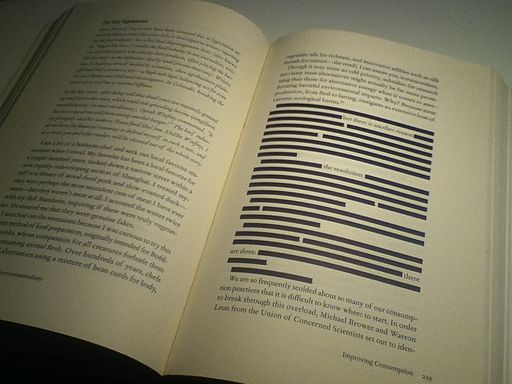Your library probably uses federal data to help your patrons with their research and information needs. You definitely have access to an enormous amount of information, generally presumed to be reliable and valid, produced by an enormous range of federal agencies – all paid for with tax dollars and belonging to all of us.
Libraries of all types have relied on being able to provide this information to our communities – health information from the CDC, planning visits to our national parks, NASA ideas on space travel, photos from your state in the National Archives, knowing what shots to get before traveling from the Dept of Health and Human Services, information on worker’s rights from the Dept of Labor, studies done on pesticides and industrial waste in the water and soil in your neighborhood from the EPA, plans for bridge safety from the Dept of Transportation, George Carlin’s FBI file, raising chickens in your back yard from the Dept of Agriculture, and so much more.
But some of this information is disappearing, and for libraries – committed as a profession to providing and sharing information freely – this is a serious problem. In addition to the ethical challenges of hiding and censoring information, this reduces the material we can share with our communities – always a problem for us!!
We are linking to one article on this issue; and there are many more places you can go for information on this problem. This is an issue beyond traditional politics; censoring of information our patrons need is wrong, and we need to know what is going on with this process. So stay informed about government information policies and practices that will impact the service you can provide, and the information you can give your patrons.
Why is federal government data disappearing?
“The White House recently deleted all of the data on its open data portal, which served as a public clearinghouse for data on everything from federal budgets to climate change initiatives.
This is a red flag, since for eight years, the Obama White House championed the practice of making government data freely available to the public in order to promote transparency and accountability, to serve as a resource for researchers, and to allow innovators to create new tools and services that spur economic activity and solve social problems.
While the Trump administration has not yet signaled that it will oppose open data across the federal government, its silence on the issue suggests that open data may not receive the same level of priority it has in the past. In sharp contrast, President Obama declared a “new era of openness” on his first full day in office and directed federal agencies to be more transparent.
Rather than wait for the Trump administration to change course, Congress should move quickly to adopt the bipartisan OPEN Data Act and permanently codify an open data policy for the U.S. government.
Unlike Data.gov, the federal government’s primary open data portal, the White House open data portal was by no means the most crucial repository of data, primarily consisting of machine-readable versions of White House reports, policy initiatives and budgets. Moreover, most of this data should still be available through an archived version of the portal, though a handful of datasets do seem to still be missing, particularly budgeting data for fiscal year 2012.
It is possible that this is merely a case of poor communication: The new administration may be in the process of updating its website and forgot to alert users of the scheduled downtime.
Unfortunately, this latest action comes on the heels of an earlier decision in February by the Department of Agriculture (USDA) to shield government data from public scrutiny by removing data collected by the agency’s Animal and Plant Health Inspection Service (APHIS).
The data consisted of inspection reports, enforcement actions, regulatory correspondence and other information related to APHIS’ investigations of animal welfare issues, ranging from puppy mills to abuse of animals in research labs, and the USDA decided it should not be publicly available due to ill-conceived concerns about the privacy of animal abusers.
Not only does this action prevent the public from accessing valuable data about animal abuse, but it prevents pet stores in seven states from complying with state laws requiring them to only deal with breeders with clean inspection reports. Stores in these states could previously use APHIS’s database to easily identify breeders without histories of violations, but now that database is no longer available to the public.
Instead of simply censoring personally identifiable information when privacy concerns arise, the USDA decided that members of the public should have to file a Freedom of Information Act request to access any of this data — a process that can take months.
The private sector will be unable to rely on government data if federal agencies can make arbitrary and capricious decisions about when to publish datasets. As Obama recognized in one of his executive orders, “The Government should not keep information confidential merely because public officials might be embarrassed by disclosure, because errors and failures might be revealed, or because of speculative or abstract fears. Nondisclosure should never be based on an effort to protect the personal interests of Government officials at the expense of those they are supposed to serve.” ”
(this article continues; go to their site for the rest of it!)

